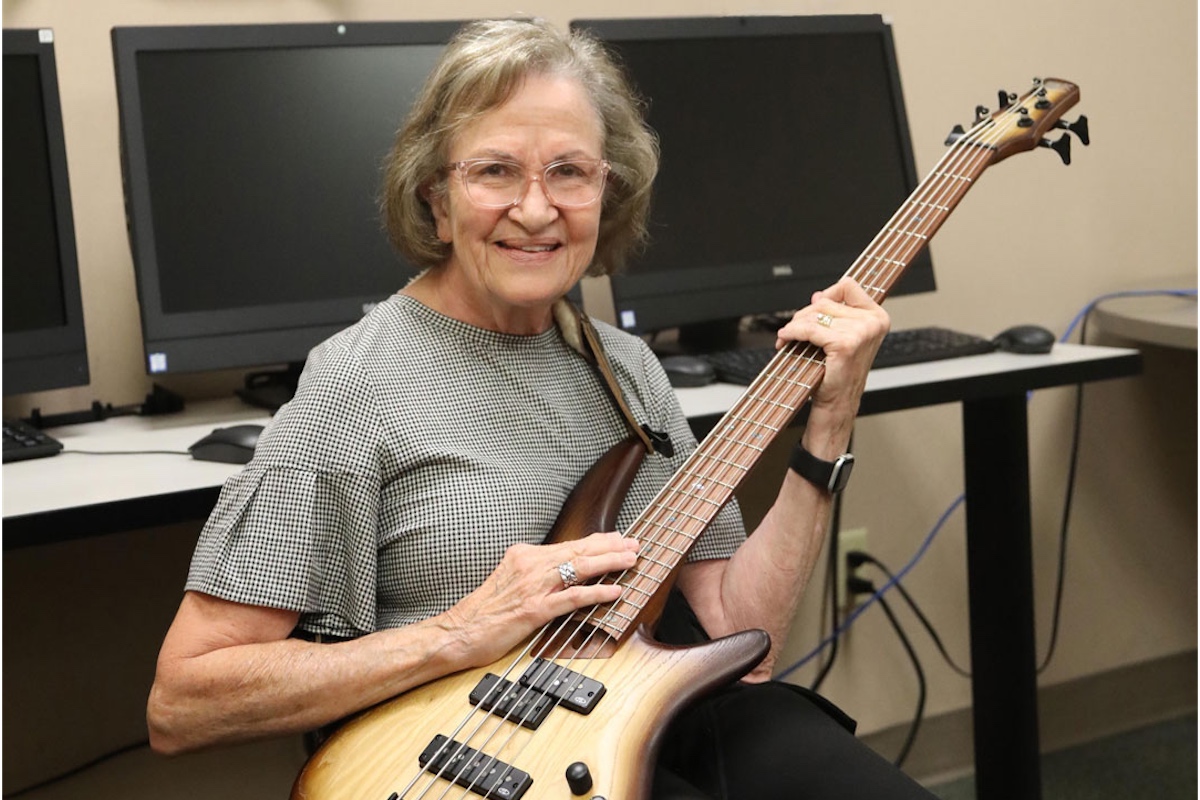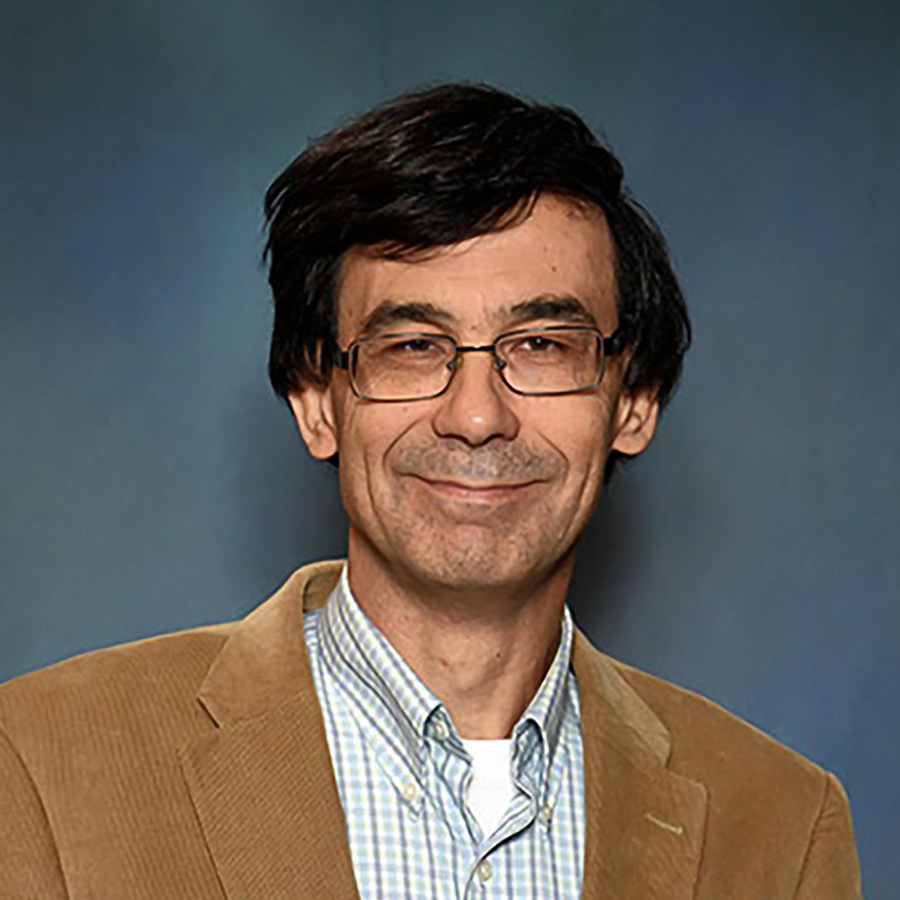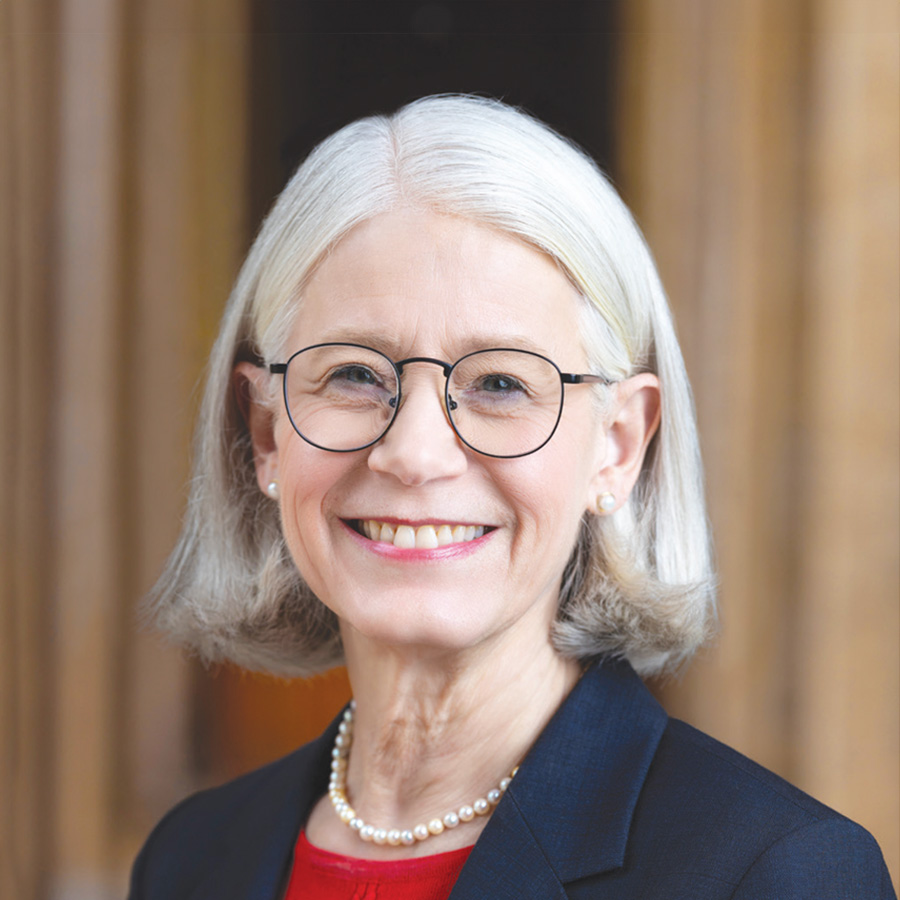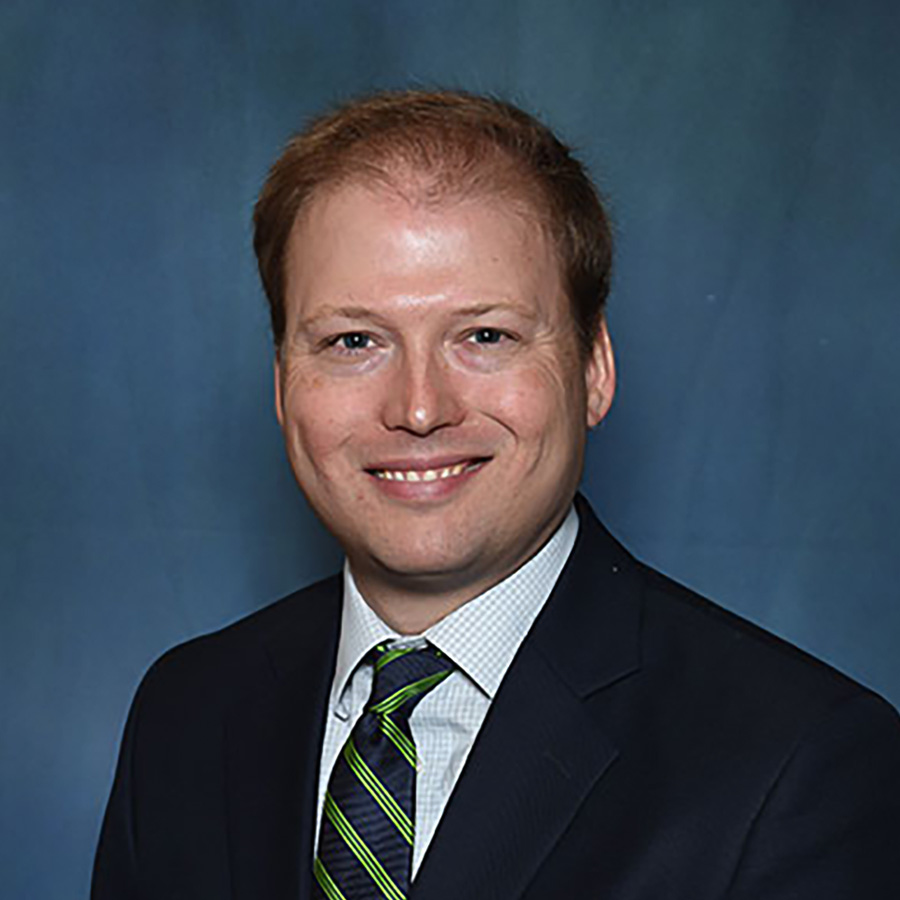Quoting Galileo, the last line of Dr. Marsha Guntharp’s email signature declares, “Mathematics is the language with which God has written the universe.” To that, one recipient responded, “Well if that’s so, I’m afraid I’m illiterate.”
Self-proclaimed math phobics are everywhere. It’s too bad they couldn’t have studied math under Marsha, or under a teacher whom Marsha had instructed. This veteran professor points to the learning process in infants as she explains an approach that can help students struggling in any field.
“If you think about how babies learn to crawl, learn to walk, learn to talk,” she said, “they’re very creative. So you have to make your teaching not too prescriptive, and allow students to figure things out for themselves.”
As an example, a very “prescriptive” approach to math or physics instruction might mean you stress having the student memorize formulas and then plug numbers into those formulas as needed. And yes, all math and physics students must learn some formulas, but at Palm Beach Atlantic University, we want students to go way beyond memorizing and using such tools. We want to instruct and lead students and coach them as they think deeply, and explore and collaborate with their classmates.
Academic journal shared this success story
In the Spring 2022 issue of the journal Dimensions in Mathematics, Marsha celebrated how this process worked gloriously one day in one of her classes. She had everybody in the class working on this problem: Hiker “a” was walking at a rate of 3 mph. Hiker “b” left 2 hours after Hiker “a” walking at a rate of 4 mph. At what time and after what distance did Hiker “b” catch up to Hiker “a”?
Now hold on, math phobics: Stay with me, please. I’m not going to take you through solving the problem; let’s just learn about the process Marsha used with her class. As students came up with solutions, Marsha had each of them explain the answer and the method they used to reach the answer. The class included a struggling student Marsha called “Rosa” (not her real name).
Marsha had the class turn to graphing calculators to test the method Rosa explained. (Marsha has long been a big fan of technology in the classroom, often using graphing calculators and robots.) That day, when the class tried different numbers using Rosa’s strategy, the method didn’t always succeed. But as the class worked through those examples, Rosa came up with a new strategy to be tested.
The class tried the new method, and a student called “Nan” said, “Oh, I understand.” Nan explained it to the class. Another student chimed in, “I see what Rosa did, and I took her ideas and did the problem my way.”
“Note the communication that was taking place in the classroom,” Marsha wrote in her journal article. “Students were explaining to other students, and then those students were explaining the thinking of their fellow classmates. As a teacher, I loved it!”
Searching and collaborating, the class dug deep
As a university president, I love it too! At the end of the class, Marsha had the students analyze what had happened. They discussed looking for patterns, looking for relationships, making conjecture, testing the conjecture, and modifying it. Marsha coached the class through free and open collaboration, and deep and memorable learning took place.
Marsha titled her journal article “When a Struggling Student Thrived,” and she concluded the article by saying, “It was a great day, indeed.”
Most of us would have a hard time remembering any single day in a math class from our college years unless it was a day that ended terribly. But I bet the student called Rosa will long remember and celebrate the encouraging result of her part in the class discussion.
The Apostle Paul says there are varieties of gifts and varieties of service, but one God who empowers us all. Paul was talking about spiritual gifts, but I believe this godly gifting also applies to our natural strengths in different areas. Mathematics comes easily to some of us while reading and writing come easily to others.
Here at PBA, I’m grateful for faculty like Marsha Guntharp: professors who lead lively class sessions as they work hard to lift up the struggling students and challenge the gifted students. Marsha enjoys collaborating with other professors, such as Dr. Michael Kolta in computer science and Dr. Fred Browning in physics. “She’s always been really good at bringing in ideas like real-world physics examples for our math classes,” said Fred. “So that’s a lot of fun.”
Finally, calling your attention to the photo of Marsha with an electric bass guitar, I note that Marsha loves music. She plays her bass at church, and also occasionally at PBA summer chapel services. She sees many direct links between math and music. “When you talk about harmonics, or pitch or frequencies,” she said, “it’s all mathematical.”
As a physician-scientist who plays violin, I agree with Marsha. I wonder: If all our elementary school teachers had played Bach in the background of our math classes, wouldn’t we have fewer math phobics? But that’s a subject for another time. Marsha, you and I must talk.
Dr. Debra A. Schwinn, a physician, researcher, and innovator, is president of Palm Beach Atlantic University. (www.pba.edu)



